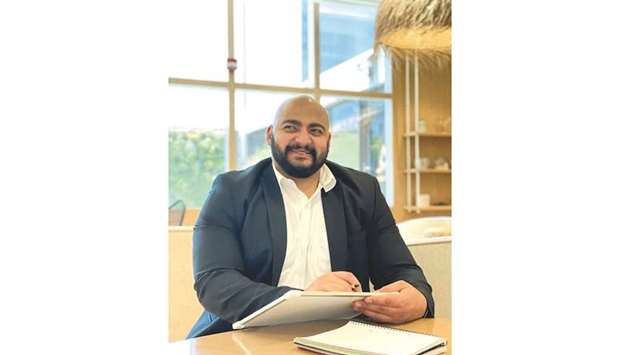Empathy is one major pillar to help overcome the challenges posed by the tsunami of change the world is going through, especially in the past two years, a Qatar-based emotional intelligence coach has stressed.
“Perhaps Covid-19 was one of those sudden challenges on a global scale that put many organisations out of business or led leaders to take tough decisions in an emotionally hijacked moment with the sole reason to save and sustain their business. In addition, there came the sudden, massive dependency on technology, which fuelled the distancing between people not just on a physical level but even on a human-to-human basis,” Joseph al-Haddad told Gulf Times.
“When we start talking to one another without any judgement, when we connect with each other from a caring perspective, the true sense of communication begins and that is where empathy plays its role in creating a safe space for us. Regardless of the advancement in technology, nothing can replace the conversations and interactions between human beings and empathy is a necessity for our survival as a species” he explained.
Al-Haddad, who has trained about 10,000 individuals in Qatar and the region both face to face and online, is a certified emotional intelligence coach from Six Seconds in the US, and a professional certified coach from the International Coaching Federation.
“I strongly believe that my role as a coach, consultant and facilitator is helping me support the social and human development pillars of Qatar National Vision 2030 through coaching and training people, from graduates to executives and others. I guide leaders and other individuals to understand and manage themselves better. I help them understand that emotions are at the core of everything we do,” he said.
According to al-Haddad, "emotions drive people and people drive relationships and performance". “If you don’t understand your emotions, you can’t understand other people and can’t manage performance in any area of life. Using different assessments, I help people understand themselves better to connect with others both on an individual and professional level."
The main areas of his coaching practice are executive, relationship and self-development coaching. “I am also a neuro-linguistics practitioner, which in simple terms is the study of patterns. I work with people to help them understand the patterns that are not working for them and support them in creating new patterns in their life,” he pointed out.
“In our brain we don’t delete our habits. When we want to change a habit and start implementing the change, our system starts to build a new pathway upon a previous pattern. The more we understand the reasons behind a change, the easier it becomes to build a new pattern. Understanding why we are doing something or why we are changing something, helps us not go back to our old, wrong practices,” he added.
“Perhaps Covid-19 was one of those sudden challenges on a global scale that put many organisations out of business or led leaders to take tough decisions in an emotionally hijacked moment with the sole reason to save and sustain their business. In addition, there came the sudden, massive dependency on technology, which fuelled the distancing between people not just on a physical level but even on a human-to-human basis,” Joseph al-Haddad told Gulf Times.
“When we start talking to one another without any judgement, when we connect with each other from a caring perspective, the true sense of communication begins and that is where empathy plays its role in creating a safe space for us. Regardless of the advancement in technology, nothing can replace the conversations and interactions between human beings and empathy is a necessity for our survival as a species” he explained.
Al-Haddad, who has trained about 10,000 individuals in Qatar and the region both face to face and online, is a certified emotional intelligence coach from Six Seconds in the US, and a professional certified coach from the International Coaching Federation.
“I strongly believe that my role as a coach, consultant and facilitator is helping me support the social and human development pillars of Qatar National Vision 2030 through coaching and training people, from graduates to executives and others. I guide leaders and other individuals to understand and manage themselves better. I help them understand that emotions are at the core of everything we do,” he said.
According to al-Haddad, "emotions drive people and people drive relationships and performance". “If you don’t understand your emotions, you can’t understand other people and can’t manage performance in any area of life. Using different assessments, I help people understand themselves better to connect with others both on an individual and professional level."
The main areas of his coaching practice are executive, relationship and self-development coaching. “I am also a neuro-linguistics practitioner, which in simple terms is the study of patterns. I work with people to help them understand the patterns that are not working for them and support them in creating new patterns in their life,” he pointed out.
“In our brain we don’t delete our habits. When we want to change a habit and start implementing the change, our system starts to build a new pathway upon a previous pattern. The more we understand the reasons behind a change, the easier it becomes to build a new pattern. Understanding why we are doing something or why we are changing something, helps us not go back to our old, wrong practices,” he added.


